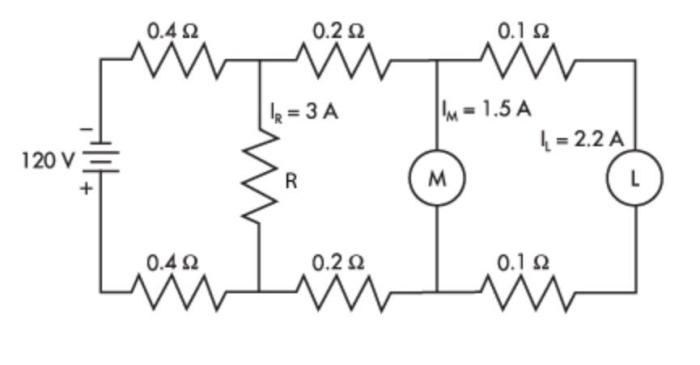Lesson 1 reviewing the applications of dc theory – Embark on a journey through Lesson 1: Reviewing the Applications of DC Theory, a comprehensive exploration into the fundamental principles and practical implications of DC theory. This foundational lesson lays the groundwork for understanding electrical circuits, power sources, circuit analysis techniques, and electronic applications.
As we delve into the intricacies of DC theory, we will uncover its significance in shaping our understanding of electrical systems and its indispensable role in the design and analysis of electronic devices. Join us as we illuminate the applications of DC theory, empowering you with the knowledge to navigate the world of electrical engineering with confidence.
Applications of DC Theory in Electrical Circuits: Lesson 1 Reviewing The Applications Of Dc Theory

DC theory is the foundation of electrical engineering, providing a framework for understanding the behavior of direct current (DC) circuits. It encompasses fundamental principles, circuit analysis techniques, and applications in various electrical systems.
DC theory enables engineers to design, analyze, and troubleshoot electrical circuits involving batteries, solar cells, generators, and other DC power sources. It helps determine voltage, current, and resistance in circuits, forming the basis for understanding more complex AC circuits and electronic devices.
DC Power Sources and their Characteristics
- Batteries:Electrochemical cells that convert chemical energy into electrical energy, providing a steady DC voltage.
- Solar Cells:Semiconductor devices that convert light energy into electrical energy, generating DC current proportional to sunlight intensity.
- Generators:Electromechanical devices that convert mechanical energy into electrical energy, producing DC current when the rotor spins in a magnetic field.
Each power source has unique characteristics, such as voltage, current, and internal resistance, which influence their suitability for different applications.
DC Circuit Analysis Techniques
DC circuit analysis techniques provide systematic methods for determining voltage, current, and resistance in DC circuits.
- Ohm’s Law:Relates voltage, current, and resistance in a simple circuit (V = IR).
- Kirchhoff’s Laws:Conservation laws that govern current and voltage distribution in circuits (Kirchhoff’s Current Law and Kirchhoff’s Voltage Law).
- Nodal Analysis:A method for solving circuits by assigning node voltages and applying Kirchhoff’s Current Law.
These techniques enable engineers to analyze complex circuits, predict circuit behavior, and design circuits to meet specific requirements.
Applications of DC Theory in Electronics, Lesson 1 reviewing the applications of dc theory
DC theory plays a crucial role in understanding electronic devices and circuits.
- Transistors:Semiconductor devices that act as switches or amplifiers, controlled by DC voltage or current.
- Diodes:Semiconductor devices that allow current to flow in only one direction, essential for rectification and signal processing.
- Amplifiers:Electronic circuits that increase the amplitude of input signals, utilizing DC power to bias transistors.
DC theory helps engineers design and analyze electronic circuits for various applications, including audio amplifiers, power supplies, and digital logic circuits.
Troubleshooting and Maintenance of DC Systems
DC systems can encounter various problems that require troubleshooting and maintenance.
- Battery Failure:Reduced voltage, high internal resistance, or short circuits can indicate battery failure.
- Circuit Faults:Open circuits, short circuits, or loose connections can disrupt circuit operation.
- Power Source Issues:Generators may experience mechanical problems or voltage regulation issues.
Regular maintenance, such as battery testing, circuit inspections, and generator servicing, helps prevent failures and ensures the reliability and longevity of DC systems.
Popular Questions
What are the key principles of DC theory?
DC theory revolves around the study of direct current, its characteristics, and its behavior in electrical circuits.
How is DC theory applied in electrical circuits?
DC theory provides the foundation for analyzing and designing electrical circuits, enabling us to determine voltage, current, and resistance.
What are the different types of DC power sources?
Common DC power sources include batteries, solar cells, and generators, each with unique characteristics.
How is DC theory used in electronics?
DC theory plays a crucial role in understanding the operation of electronic devices such as transistors, diodes, and amplifiers.


